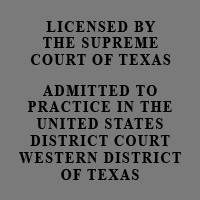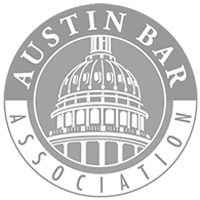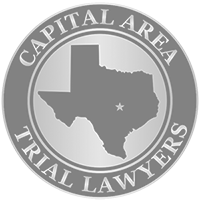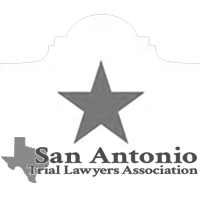Texas Oil Investment Fraud Lawyer Represents Investors Who Have Lost Significant Investments and Investors Who Have Original Information of Large Oil Investment Fraud Schemes by Texas Oil Investment Fraud Lawyer
Texas Oil Investment Fraud Lawyer Jason S. Coomer helps investors who have lost significant investments fraud oil investment fraud as well as investors and oil professionals who have original information of significant oil investment fraud schemes. If you have lost a significant investment in an oil investment fraud scheme or have original evidence of an oil fraud scheme, please feel free to contact Texas Oil Investment Fraud Lawyer, Jason S. Coomer or use our contact submission form.
The Number of Oil Investment Fraud Cases Have Increased Substantially Over the Last Decade
The number of fraud cases related to private securities offerings for oil and gas ventures has increased over the last few years. From few in 2005 and 2006, the number of SEC cases has averaged more than 20 per year since. state securities regulators have experienced a similar increase in cases over the past five years. All investing involves varying degrees of risk. Investing in private offerings, however, carries unique risks, and private oil and gas offerings have additional risks to consider.
These Oil Investment Fraud Lawsuits can include direct actions against brokers and other defendants as well as the basis for Whistleblower Reward Bounty Actions or Whistleblower Reward Federal False Claims Act Lawsuits.
SEC Charges “Frack Master” With Running an $80 Million Oil and Gas
Fraud
2016-130
Washington D.C., June 24, 2016 —
The Securities and Exchange Commission today charged four companies and
eight individuals in an $80 million oil and gas fraud orchestrated by a
Dallas man who calls himself the “Frack Master” for his purported
expertise in hydraulic fracturing.
The SEC charged Chris Faulkner – the CEO of Breitling Energy Corporation
(BECC) and recurring guest on CNBC, CNN International, Fox Business
News, and the BBC to discuss oil-and-gas topics – with disseminating
false and misleading offering materials, misappropriating millions of
dollars of investor funds and attempting to manipulate BECC’s stock. The
SEC also charged BECC and suspended trading in BECC’s securities for 10
business days.
According to the SEC’s complaint, Faulkner started the scheme dating
back to at least 2011 through privately-held Breitling Oil and Gas
Corporation (BOG), which offered and sold “turnkey” oil and gas working
interests. Faulkner ran most of BOG’s operations, while co-owners
Parker Hallam and Michael Miller oversaw the sales process. The SEC
alleged that BOG’s offering materials contained false statements and
omissions about Faulkner’s experience, estimates for drilling costs, and
how investor funds would be used. The SEC further alleged that the
offering materials included reports by licensed geologist Joseph Simo
that included baseless production projections and failed to disclose his
affiliation with BOG. The scheme evolved to include BOG’s successor,
BECC, a reporting company with shares traded on OTC Link and two
affiliated entities, Crude Energy LLC and later Patriot Energy Inc.
Faulkner allegedly established Crude and Patriot to deceive investors
through offerings similar to those conducted by BOG. The complaint
alleges that even though investors thought Hallam and Miller ran these
two entities, Faulkner directed much of Crude’s and Patriot’s
operations. The SEC alleged that BOG, Crude and Patriot raised more than
$80 million from investors as part of these deceptive offerings.
The SEC alleged that Faulkner misappropriated at least $30 million of
investor funds for personal expenses, including lavish meals and
entertainment, international travel, cars, jewelry, gentlemen’s clubs,
and personal escorts. The SEC alleged that Beth Handkins, a former
employee of Crude and Patriot, Rick Hoover, the former CFO of BECC, and
Jeremy Wagers, BECC’s general counsel and COO, all played essential
roles in assisting Faulkner in the alleged fraud.
“Chris Faulkner allegedly orchestrated a sophisticated and multilayered
scheme using BECC and its affiliated entities as a conduit to access
millions of investor dollars,” said Shamoil T. Shipchandler, Regional
Director of the SEC's Fort Worth Regional office. “The financing for
Faulkner’s opulent lifestyle came directly at the expense of unwitting
investors across the country.”
The SEC also alleged that Faulkner, Wagers and Hoover misrepresented
various aspects of BECC’s operations in BECC’s public reports, including
statements about the company’s financial performance, and its
relationship to Crude and Patriot. In addition, while in the middle of
perpetrating this fraud on investors, Faulkner engaged in a scheme to
manipulate the price of BECC’s stock, with the assistance of former BECC
employee Gilbert Steedley, by placing trades at the end of the day to
“mark the close” of the stock.
The SEC charged Faulkner, Hallam, Miller, Simo, Handkins, BOG, Crude,
and Patriot with violations of the antifraud provisions for their
respective roles in the offering frauds, and charged BECC, Faulkner,
Wagers, and Hoover with violations of the antifraud, reporting,
recordkeeping and internal controls provisions of the federal securities
laws. The SEC also charged Faulkner, Wagers, and Hoover with lying to
auditors, and charged Faulkner and Hoover with violating certification
provisions of the Sarbanes-Oxley Act. Faulkner faces additional fraud
charges based on his alleged manipulation of Breitling Energy’s stock,
and the SEC charged Steedley was charged with aiding and abetting
Faulkner’s manipulative conduct.
Miller, Handkins and Steedley have offered to settle the Commission’s
action against them on a bifurcated basis. Each will agree to full
injunctive relief, including a conduct-based injunction for Miller, and
will have the Court determine the appropriate disgorgement and civil
penalties at a later date upon motion by the Commission.
The SEC’s investigation, which is continuing, has been conducted by
Scott Mascianica, Ty Martinez and Melvin Warren and supervised by Eric
Werner and David Peavler. The SEC’s litigation will be led by B. David
Fraser and Mr. Mascianica.
Securities and Exchange Commission v. Hartmut Theodor Rose and
James Patrick Reedy, Civ. Action No. 3:09-cv-00857-G (United States
District Court for the Northern District of Texas, Dallas Division)
On May 7, 2009, the Securities and
Exchange Commission filed a civil injunctive action in the United States
District Court in Dallas against Hartmut T. "Hardy" Rose and James
Patrick Reedy for their fraudulent offers and sales of oil and gas
interests. The Commission's complaint alleges that, between August 2003
and August 2005, Rose and Reedy, acting through Geo Companies of North
America, Inc., Geo Natural Resources, Inc. and Geo Securities, Inc., a
broker-dealer registered with the Commission (collectively "Geo"),
raised more than $10 million from over 300 investors nationwide. The
complaint further alleges that Rose and Reedy made numerous material
false and misleading representations and omissions in connection with
the offers and sales of the joint venture interests. Among other things,
the complaint charges that Reedy touted Geo's successful track record,
when, in reality, Geo had very few wells that produced in commercial
quantities. Additionally, the Commission alleges that, in several
instances, Rose and Reedy solicited investors for funds to complete
wells, without disclosing that Geo's geologists advised against
completing them. Finally, the complaint alleges that Rose and Reedy
solicited investors for additional funds by falsely portraying prior
wells as "successful," when the wells were dry holes.
The complaint alleges that Rose and Reedy violated Sections 5(a), 5(c)
and 17(a) of the Securities Act of 1933 and Section 10(b) of the
Securities Exchange Act of 1934 and Rule 10b-5 thereunder. The complaint
seeks permanent injunctions, disgorgement of ill-gotten gains plus
prejudgment interest and civil penalties against Rose and Reedy.
Without admitting or denying the Commission's allegations, Rose has
consented to a permanent injunction against future violations of the
registration and antifraud provisions. Rose also agreed to pay
disgorgement of $58,914, prejudgment interest of $22,749.29 and a
$50,000 civil penalty. Litigation continues against Reedy.
Oil Company Under Payment of Royalties False Claims Act Lawsuit, Oil Company Oil Royalty Accounting Fraud Whistleblower Lawsuit, Oil Company Fraud Accountant Whistleblower Qui Tam Lawsuit, Petroleum Accountant Fraud Whistleblower Lawsuit, Texas Oil Company Production Fraud Lawsuit, and Texas Operator Production Fraud Lawsuit Information by Oil Company Accounting Fraud Lawyer, Petroleum Accountant Whistleblower Lawyer, and Oil Company Accounting Fraud Qui Tam Lawyer Jason S. Coomer
One area of Oil Company Accounting Fraud Whistleblower cases are the Oil Company Fraud Qui Tam Lawsuits, Oil Company Federal False Claims Act Whistleblower Lawsuits, and Oil Company Fraud Lawsuits under State False Claims Act Statutes. These traditional oil company accounting fraud whistleblower cases have been common over the last twenty years and unusually are based on the Oil Company underpaying royalties and/or violating federal statutes. Below are some of these lawsuits where the United States Department of Justice has forced oil companies to pay hundreds of millions of dollars based on qui tam whistleblower lawsuits.
PHILLIPS PETROLEUM PAYS $8 MILLION TO RESOLVE OIL ROYALTY CLAIMS MORE THAN $415 MILLION PAID TO DATE BY 15 COMPANIES
WASHINGTON, D.C. - Phillips Petroleum Company has agreed to pay $8 million to resolve claims under the False Claims Act that the company underpaid royalties due for oil produced on federal and Indian leases from January 1, 1988 to December 31, 1998, the Justice Department announced today.
Federal leases are administered by the Minerals Management Service of the Department of the Interior. Each month, oil companies are required to report the amount of oil produced and the value of the oil produced on federal and Indian leases. The companies pay royalties based upon the value of the oil they report.
J. Benjamin Johnson, Jr., and John Martinek filed a complaint in the U.S. District Court in Lufkin, Texas against the Bartlesville, Oklahoma company on behalf of the United States under the qui tam or whistleblower provisions of the False Claims Act. The two will share in the proceeds of the settlement.
Prior to today's agreement with Phillips, the Justice Department had reached settlements of more than $409 million with14 other oil companies to resolve claims of underpayment of royalties. Previously, the Department had reached agreements with Mobil Oil, $45 million;
Oxy USA, Inc., $7.3 million; Chevron, $95 million; Conoco, $26 million; BP Amoco,
$32 million; Texaco, $43 million; Pennzoil, $11.9 million; UPRC, $2.7 million; Sun Oil Company, $200,000; Exxon Mobil for $7 million; Shell Oil, $110 million; Burlington Resources, $8.5 million; Marathon, $7.7 million and Kerr-McGee, $13 million.
The investigation and settlement of the False Claims Act proceedings were jointly handled by the Office of the United States Attorney for the Eastern District of Texas and the Civil Division of the Department of Justice, with the assistance of the Department of the Interior's Office of Inspector General and the Minerals Management Service.
The case is entitled US ex rel. Johnson v. Shell Oil Co., Civil No. 9:96CV66 (E.D. Texas).
Oil Investment Fraud and Other Forms of Securities Fraud Can Be The Basis of Large Bounty Actions That Can Pay Substantial Rewards To Whistleblowers
Securities fraud, also known as stock fraud and investment fraud, is the unlawful practice of inducing investors to make investment decisions on the basis of false accounting information, frequently resulting in losses, in violation of the securities laws and commodity future market laws. Oil company whistleblower, petroleum accountant whistleblower, and petroleum executive whistleblower bounty action lawsuits include deceptive practices in the stock and commodity markets, and occur when investors are enticed to part with their money based on fraudulent misrepresentations.
Securities fraud whistleblower lawsuits include outright theft from investors, theft from working interest owners, illegal kickbacks, under reporting of royalties, and misstatements on a public company's financial reports as well as a wide range of other actions, including insider trading, front running and other illegal acts on the trading floor of a stock or commodity exchange. Evidence for a securities fraud whistleblower lawsuit may include:
-
False or misleading information on a company's financial statement;
-
False or misleading information on Securities and Exchange Commission (SEC) filings;
-
Lying to corporate auditors;
-
Insider trading;
-
Stock manipulation schemes;
-
Embezzlement by stockbrokers;
-
Manipulation of a security’s price or volume;
-
Fraudulent or unregistered offer or sale of securities, including Ponzi schemes, high yield investment programs or other investment programs;
-
Brokerage Account and Retirement Account Fraud;
-
False or misleading statements about a company;
-
Failure to file required reports with the SEC;
-
Abusive naked short selling;
-
Theft or misappropriation of funds or securities;
-
Fraudulent conduct or other problems associated with municipal securities transactions or public pension plans; and
-
Bribery of foreign officials
Through new legislation the federal government is offering financial incentives to oil company securities fraud whistleblowers, petroleum accountant whistleblowers, commodity fraud whistleblowers, and other petroleum financial fraud whistleblowers to step up and blow the whistle on financial fraud including the above listed forms of securities fraud that lead to CFTC violations, SEC violations, and fines. These new whistleblower bounties can be collected by whistleblowers that properly report SEC violations, financial fraud, securities fraud, commodities fraud, and stimulus fraud.
Other forms of SEC Violations including reporting problems with a brokerage or advisory account; fraudulently preventing access to funds or securities; fraudulent order handling, trade execution, or confirmations; fraudulent fees, mark-ups or commissions; and inaccurate or misleading disclosures by financial professionals, may also lead to potential SEC bounties, if the fraudulent acts result in fines of over $1 million and are properly reported.
Oil Companies that pay illegal kickbacks and bribes to government officials and former government officials in exchange for drilling contracts, pipeline contracts, oil leases, offshore drilling, mining contracts, and other large building projects can be brought to justice and made to pay large penalties under the Foreign Corrupt Practices Act. The whistleblowers that bring these corporations to justice may be able to collect large economic rewards under the Securities Exchange Act (SEC Whistleblower Bounty Actions) and the Commodity Exchange Act (CFTC Whisteblower Bounty Actions).
The Oil Company Illegal Bribe Whistleblower or Petroleum Executive Illegal Kickback Whistleblower may be entitled to not only the amount of the illegal bribe or kickback, but the benefit of the illegal bribe or kickback. In cases where $100,000.00 bribe is made to obtain a $100 million pipeline, the Petroleum Executive Illegal Bribe Whistleblower or Oil Company Illegal Kickback Whistleblower may be entitled to 10 to 30% of the $100,000,000.00 and the $100,000.00 translating into a $10 million to $30 million award.
Stock Manipulation Scheme Lawyer, Corporate Accounting Fraud Lawyer, Fraudulent Accounting Lawyer, False Accounting Statement Lawyer, SEC Whistleblower Incentive Program Lawyer, & SEC Bounty Action Lawyer
As a Stock Manipulation Scheme Whistleblower Lawyer and Oil Company Accounting Fraud Whistleblower Lawyer, Jason S. Coomer commonly works with other powerful financial fraud and securities fraud whistleblower lawyers to handle large Stock Manipulation Scheme Whistleblower Lawsuits, Oil Company Accounting Fraud Bounty Actions, Petroleum Company False Accounting Statement Bounty Claims, and other Oil Company Multinational Corporation Accounting Fraud Lawsuits. He also works on Medicare Fraud Whistleblower Lawsuits, Defense Contractor Fraud Whistleblower Lawsuits, Stimulus Fraud Whistleblower Lawsuits, Government Contractor Fraud Whistleblower Lawsuits, Stock Manipulation Lawsuits, and other government fraud whistleblower lawsuits.
Oil Investment Fraud Lawyers, Oil Accounting Fraud Lawyers, and Operator Production Fraud Lawyers
Oil Company Fraud including Oil Company Accounting Fraud, Oil Company Royalty Fraud, Oil Company Tax Fraud, Oil Company Working Interest Fraud, and Oil Company Production Fraud are forms of corporate fraud that can result in Qui Tam Whistleblower Lawsuits, SEC Whistleblower Bounty Actions, CFTC Whistleblower Bounty Actions, Delaware Corporation Qui Tam Lawsuits, IRS Whistleblower Tax Fraud Lawsuits, and other whistleblower reward laws.
As an Oil Company Accounting Fraud Lawyer, Petroleum Accountant Fraud Whistleblower Lawyer, and Oil Company Accounting Fraud Whistleblower Lawyer, Jason S. Coomer helps petroleum accountants, petroleum executives, and other petroleum professions blow the whistle on oil company accounting fraud, oil company royalty interest fraud, oil company working interest fraud, and other oil company fraud. He also commonly works with other powerful Oil Company Accounting Fraud Lawyers, Petroleum Accountant Fraud Whistleblower Lawyers, Delaware Oil Company Lawyers, and Oil Company Accounting Fraud Whistleblower Lawyers to handle large Oil Company Illegal Kickback Whistleblower Lawsuits, Delaware Oil Company Underpayment of Royalties Lawsuits, Oil Company Accounting Fraud Bounty Actions, Petroleum Company False Accounting Statement Bounty Claims, and other Oil Company Multinational Corporation Accounting Fraud Lawsuits.
If you are the original source with special knowledge of fraud and are interested in learning more about a potential oil company whistleblower lawsuit, please feel free to contact Texas Oil Company Accounting Fraud Lawyer, Petroleum Accountant Fraud Whistleblower Lawyer, and Oil Company Accounting Fraud Whistleblower Lawyer, Jason S. Coomer.
The Law Offices of Jason S.
Coomer, PLLC
3901 S. Lamar Blvd., Ste. 260
Austin, Texas 78704
(512) 474-1477
jason@texaslawyers.com
Feel Free to Contact Us with any Questions
Associations




